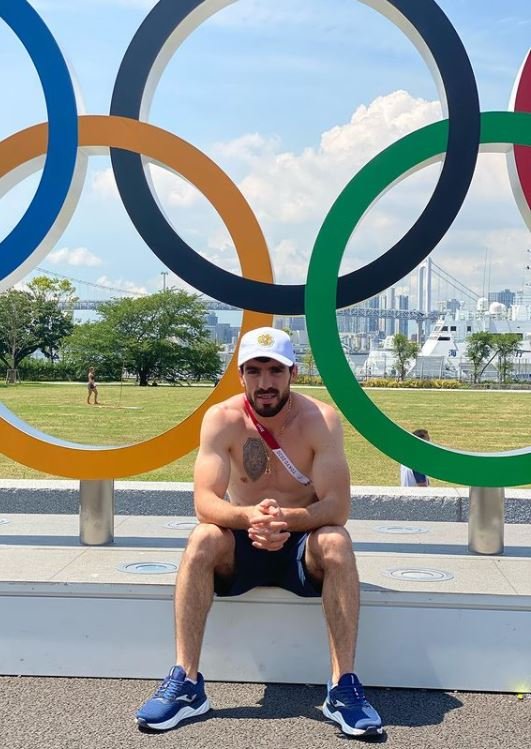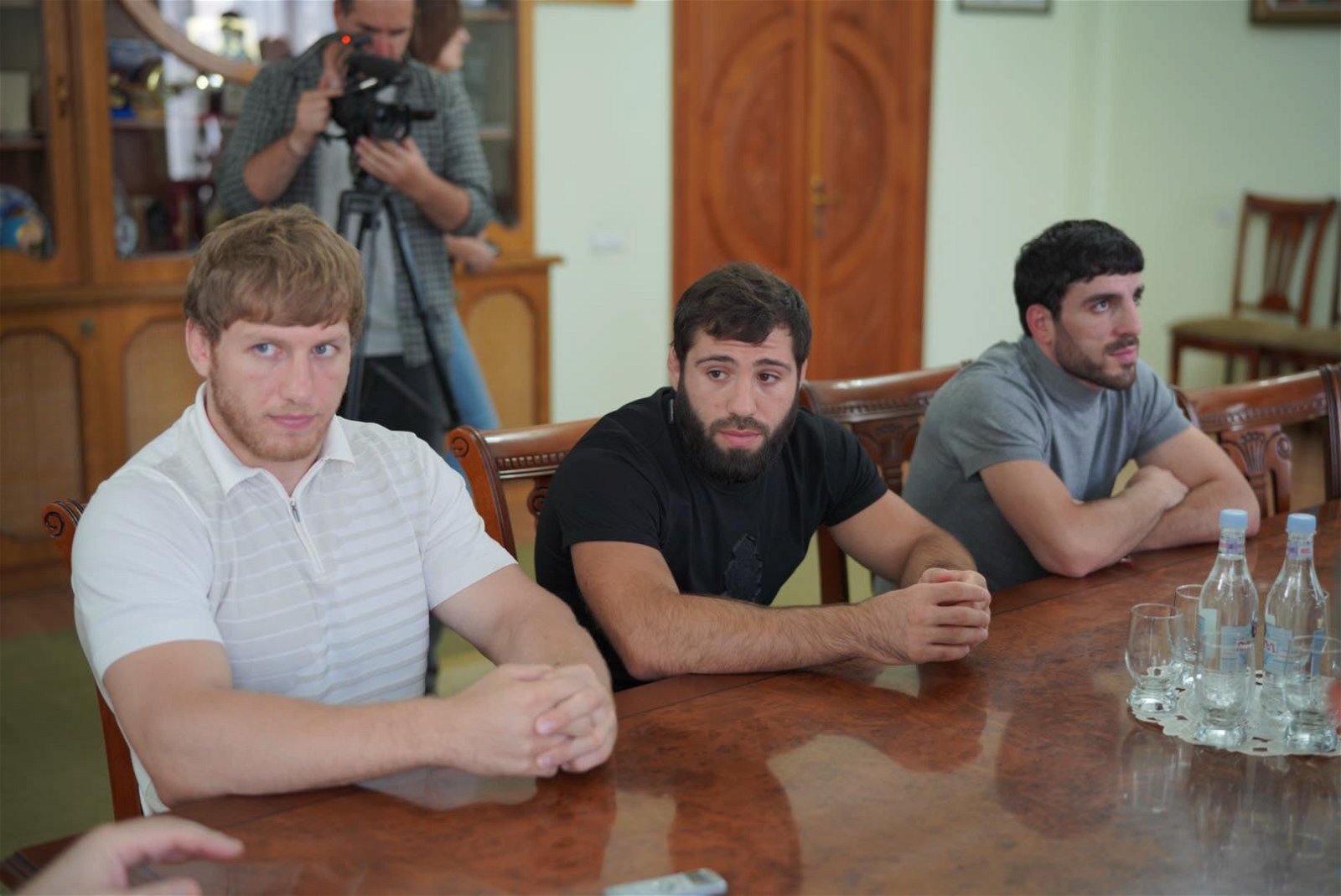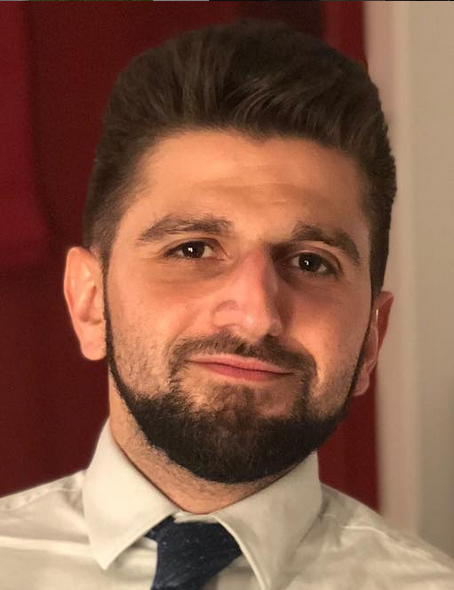Hovhannes Bachkov stood alongside three fierce competitors on a podium at an empty Kokugikan Arena in Tokyo and stared into the distance.
Ahead, four flags were raised into the rafters. The highest one was Cuba’s red, white and blue—not Armenia’s red, blue and orange like Bachkov had hoped for coming into the 2020 Summer Olympics.
View this post on Instagram
Blaring from the speakers of the venue was “La Bayamesa,” the national anthem of Cuba—not “Mer Hairenik.”
And around Bachkov’s neck was not a gold medal, but a bronze.
“When you’re ambitious to become a champion and you finish third, it’s very sad,” Bachkov told the Armenian Weekly about his initial feelings following the men’s lightweight boxing tournament at the Olympics. “It’s tragic that you return to your native country with even a medal.”
But the pain of not winning gold has since somewhat dissipated.
Bachkov is grateful for his Olympic experience—a run which saw the 28-year-old Gyumri native obliterate three consecutive opponents before he met his match in the semifinal bout against Keyshawn Davis of the United States.

Bachkov lost to Davis via unanimous decision in an ugly fight that featured more grappling and grabbing than boxing. Davis was deducted a point by the judges in the second round for receiving too many warnings from the referee. Despite that, two of the five judges still awarded the round to the American, which ended up being the difference of the fight.
“We didn’t understand how the fight started, and we didn’t understand how it ended. If you count the amount of minutes we fought, it was only four minutes… There’s nothing like that anywhere. Those two judges messed everything up going forward. If those two judges had ruled me the winner of the second round, then it would’ve been a tie even if I lost the third. There’s a good chance that after applying the tiebreaker (total strikes) I would’ve won.”
But after having to cope with what could’ve been, Bachkov has come to terms with the final outcome as he became the only boxer representing Armenia to win medals in all major tournaments (European championship, world championship and Olympics).
“I’m very content. It’s a dream come true. All of these years, the goal was to win a medal,” Bachkov said. “I can’t say I fully made the Armenian people happy because I didn’t win a gold … But what can I say? I am both grateful and happy to win a medal and to not disappoint all the people who wanted me to win a medal.”
Bachkov also understands his performances resonated outside of sports, too. After a tumultuous year in Armenia because of the Artsakh War amid a global pandemic, the boxer felt some sort of responsibility to help uplift his nation through the means of sport.
“During the days of the war, I had a professional match, and I was in Dubai. Those days were difficult because my mind and my spirit was in Armenia. But I wanted my win to be a small victory for Armenia and I wanted to honor the soldiers, my country … Whoever considers themselves a member of the Armenian nation is responsible to shine a light for Armenia—whether it’s with victories, somebody with a business venture or another person in another field—we have to be responsible for that.”
One of Bachkov’s most notable bouts during the Olympic tournament came in the Round of 16 when he fought and defeated Javid Chalabiyev of Azerbaijan. Bachkov noted that journalists have constantly asked him about whether the stakes were higher because he was fighting an Azeri.
“The answer to that is that everyone is an enemy in the ring. If he wasn’t Azeri and if he was from another country, I wouldn’t have fought him in a different way. I would use the same arsenal against both opponents and I would do whatever it takes to win.”
While his approach to the fight didn’t change, Bachkov admitted the win definitely felt sweeter than a regular victory.
“I’m happy that I defeated that opponent because as you know that country (Azerbaijan), when we defeat them, it’s such a big deal for us. That’s why I’m twice as happy for that.”
Bachkov has a world of options following his successful Olympic campaign. He is currently in contract negotiations to continue his professional career. He followed his win in Dubai last fall with a knockout victory in Kazakhstan in April. Whether his new contract allows him to fight as an amateur (and thereby be eligible for the 2024 Olympic Games in Paris) remains to be seen. Until then, Bachkov is reaping the benefits of being an Armenian Olympic hero in his home country.

“They look at me in a different way,” Bachkov said with a laugh. “But no, it’s interesting for me. People want to mingle with you, see you, take pictures and congratulate me.”



Be the first to comment